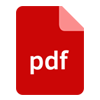5 Big Ideas at the 26th Forum 2000 Conference
FROM RHETORIC TO ACTION
Opening the Forum 2000 and Forum for Ukraine conference, Czech Prime Minister Petr Fiala shared an idea that reverberated throughout the whole day: “the age of passivity is over for good.” The “age of half-measures is over, too,” added Ukrainian Foreign Minister Dmytro Kuleba.
To prevent wars and guarantee a free world, democracies must ally with each other, and they must take action. “Collaboration, support, [and] informationsharing
remain key to democratic resilience,” expressed President of Taiwan Tsai Ing-wen. Liberal democracies must leave big, nice speeches behind and “we have to be resolute in defending our values and our freedom” stated Czech Foreign Affairs Minister Jan Lipavský.
SUPPORTING UKRAINE IS SUPPORTING FREEDOM
The cruel and unlawful Russian invasion to Ukraine was a “slow motion wake-up call” for the international democratic community. As President Volodymyr Zelenskyy stressed, “Ukraine is a battleground for the decisive fight for freedom.” Liberal democracies around the world need to act together and send a clear
message that “we are not afraid to stand up for our allies because our freedom depends on their freedom,” as Fiala underscored.
Defeating Putin’s Russia will put an end to a big authoritarian government that aims to “split our democracies,” as German Minister of Foreign Affairs Annalena Baerbock explained. To put an end to this authoritarian regime, liberal democracies must increase their level of support to Ukraine, sending more high-tech weaponry and financial aid.
“No matter how high the energy prices are... first of all [we need] to send weapons, heavy weapons, weapons, weapons, weapons to Ukraine,” emphasized Viola von Cramon, Vice-Chair of the EU-Ukraine Parliamentary Association Committee. Ukrainians have proved their strength and commitment in this war. And “the
Western response to Putin has been much more accurate, much more coherent and much more united than many, including the Kremlin, would have expected”, highlighted the Dutch Foreign Affairs Minister Wopke Hoekstra. However, much more is still needed.
UKRAINE’S ACCESSION TO THE EU IS IN THE BEST INTEREST OF A DEMOCRATIC WORLD
The idea that only Ukraine will benefit from European Union membership is shortsighted. The Prague Manifesto for a Free Ukraine, adopted during the Forum and signed by many of the conference delegates, recognized that “embracing the prospect of Ukraine’s future membership should be regarded as a step towards
securing the EU’s own economic interests in Ukraine.”
There is a consensus among European ministers of foreign affairs that Ukraine will become an EU member. But the timing is key. The European Union needs to make the accession process more clear, transparent, and realistic for all the sides involved. As Minister Kuleba expressed, “If Ukraine is ready to act fast, the European Union has to act fast, too.”
PROTECTING TRUTH IS VITAL
In his famous work, The Power of the Powerless, Václav Havel explained the importance and meaning of living in truth as crucial to breaking the chains of totalitarianism. Now, autocrats and other illiberal actors are distorting the information space, making it increasingly difficult for citizens to decide what or who to trust. Breaking the bonds of trust is the typical authoritarian strategy. Thus, it has become urgent that “civic actors learn how to live in the truth. By living in the truth, they keep this freedom of expression alive in every respect,” observed Ramin Jahanbegloo from Jindal Global University.
Many efforts, public and private, are taking place to counteract disinformation, but the fast pace of technological development makes it difficult for civil society and lawmakers to respond or get ahead of the evolving challenges. But while technology poses some concerns for democracy, it also offers room for hope. Blockchain, for instance, may prove a very useful solution against deep-fakes, and VPNs will eventually evolve to more broadly meet the needs of those living under platform bans and digital censorship.
Civic activists need to redouble their efforts to engage technology companies to help them identify and develop the tools that activists and journalists need. Companies must continue adapting their platforms and services to different languages, as well as diverse social and cultural demands.
GLOBAL DEMOCRACIES MUST STAND TOGETHER
As attention turns towards events in Ukraine, liberal democracies should not lower their guard concerning the state of democracy elsewhere. This could be the case in the Western Balkans, which according to Francis Fukuyama, “is an area that could blow up in a very nasty way in the future.”
At the same time, liberal democracies must not be timid when engaging with Taiwan out of fear of Beijing’s retaliation. The Minister of Foreign Affairs of Taiwan, Joseph Wu, expressed that “democracies must stand together with credible deterrence and send a clear message that we don’t bow to any form of coercion.”
Inspired by the legacy of Madeleine Albright, Kosovo President Vjosa Osmani-Sadriu declared, “You always need to make sure that you don’t miss a chance to take a hardline against dictators, against tyrants.”
As the world contends with geopolitical contestation, “who are Western countries going to forge the alliance with? Is it the authoritarian leader [who is] as barbaric as Putin?” asked Farida Nabourema, Director of Togolese Civic League. Alliances should be based on common democratic values and not on economic interests, and all democratic countries must participate in the struggle for democracy— it should not just be a prerogative of the EU or the United States.


